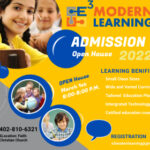-
5 Reasons Why Play Is Important For Learning
Play with a purpose
You will often hear educators use the terms ‘play-based learning’ or discussing the importance of play in early childhood. At E3 Modern Learning, our early learning program is inspired by the Montessori education philosophy which is a method of education that is based on self-directed activity, hands-on learning, and collaborative play. In addition, we use the Reggio Emilia education philosophy which models a partnership with children, teachers, and parents
At E3 Modern Learning, is a place of adventure, growth, and learning. Our aim is to support little learners’ natural curiosity, eagerness to learn and their love of communication with others. Our learning environment is designed to provoke curiosity and constantly challenge little learners’ thinking.
1. Brain Development
Research has proved that play helps develop brain development. An amalgamated research field called the science of learning has identified four key ingredients of successful learning: learning occurs best when children are mentally active (not passive), engaged (not distracted), socially interactive (with peers or adults), and building meaningful connections to their lives (Hirsh-Pasek et al. 2015).
2. Language Development
Through play children are observing, exploring, listening and imitating. Even when your child is playing, they are learning important information and exposed to new vocabulary.
3. Coordination & Physical Activity
The cerebellum is influenced in development by play. One of the functions of the cerebellum is physical coordination.
4. Math Development
There are studies that show preschoolers who played with blocks had better math grades and even took honors classes.
5. Self-Regulations
While little learners play they are learning skills such as how to concentrate on a task, how to take turns and how to share. Furthermore, these will help little learners in regulating their behavior and emotions.
Play is crucial for early childhood development and, most importantly, a love of learning. When little learners play and learn new things they perceive that learning can be fun and consider learning as something enjoyable, rather than a chore.
-
References:
- https://www.naeyc.org/resources/pubs/yc/may2017/case-brain-science-guided-play




